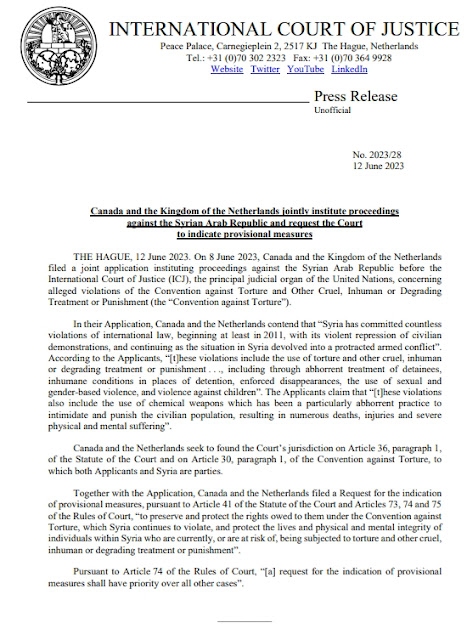Syria Plague and the Nascent Justice Margin between Domestic Affairs and Human Rights Internationalization

In a historic unprecedented case (for a sitting head of state), the Paris Court of Appeal, earlier this month, upheld the Syrian president arrest warrant over the use of chemical weapons in Syria. However, the French Public Prosecutor has appealed this decision to the Cassation Court. This move is widely deemed to be morally and legally wrong and disrespectful of victims' rights and the law and justice principles. It is also considered as a political move to protect the perpetrators at the expense of the human rights and the world's committed effort to stop the use of the weapons of mass destruction and the struggle against the crimes against humanity. This case and its issued arrest warrant of a sitting head of state is a sign that the Syrian plague has contributed to raising awareness of the suffering of peoples at the domestic level and to forming an international consciousness about this sensitive issue formerly deemed a domestic affair. There is a new margin ...



